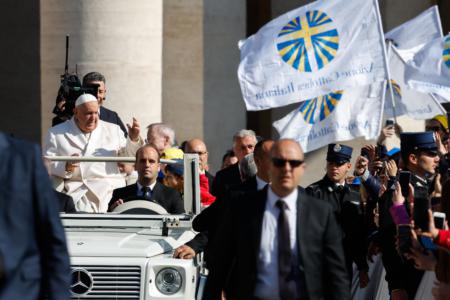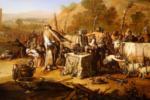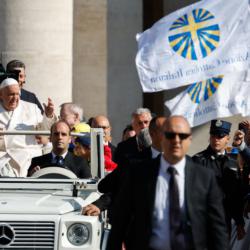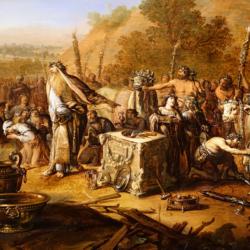From the Archives: Omaha bishop writes to Boston for support of Native American missions
On June 28, 1878, Bishop James O'Connor wrote to Archbishop John J. Williams of Boston from Omaha, Nebraska, describing his attempts to minister to the Native Americans in the region.
Bishop O'Connor had served as Vicar Apostolic since 1876, responsible for all missionary activity in the region, which included an estimated 50,000 Native Americans. Of these, he claims, about 9,000 to 10,000 are Catholic, and "the rest are, generally, either anxious, or well-disposed to become such."
Bishop O'Connor's letter focuses on the Standing Rock, Red Cloud and Spotted Tail Agencies; the latter two he considers the most influential in the Sioux Nation due to their combined population of about 14,000. He recounts how the previous year the agencies appealed for priests and sisters to be sent to them, a request largely ignored by the government, but which prompted action on his part. He sent an abbot who knew their language, then two secular priests, and mentions a community of nuns attempting to relocate to the Spotted Tail agency.
His letter addresses difficulties he faces in ministering to these populations, largely a lack of support from the civil authorities. While he was able to set up a school at the Standing Rock Reservation, and was negotiating the same for the Red Cloud and Spotted Tail Agencies, the support promised from the Catholic Indian Bureau was not forthcoming, and "the prejudice and dishonesty of the men connected with the Interior Department will prevent them." He reveals that while the U.S. government was bound by treaties to set up schools for the agencies, they were in no way obligated to support missionary actives.
He also relates the story of his meeting the Commissioner of the Indian Affairs Bureau, with whom he discussed the Native American's preference for Catholic over Protestant missionaries. The commissioner's reply indicated that the government cared little what denomination the Native Americans preferred, a bill was being considered to allow missionaries of any faith to set up residences and schools on the reservations.
Bishop O'Connor writes that the Native Americans are "wards of the nation...equally the wards of our national church," and the nation, he believes, "has sinned deeply against them." He continues that while the federal government may have forgotten their obligations, "God grant that we Catholics may not have, to answer for having, at least, neglected them."
Bishop O'Connor ends his letter with an appeal for support from the Archbishop Williams. He firmly believes "that the Indian question, in its religious as well as in its civil and social bearing, is one of that concerns not alone the Western States and territories, but the entire country."
There are Catholic settlers in the region, he admits, but they are barely able to survive themselves and have little charity to offer. He continues, "nor could I without some feeling of shame ask the Propagation of the Faith for a special appropriation for Indian missions, at least till I had appealed in vain to the Catholics of the United States." He then appeals to Archbishop Williams for "regular" and "sufficient" support in the form of an annual collection to assist the "helpless victims of the cruelty and rapacity of our people."
Bishop O'Connor would be named first Bishop of the Diocese of Omaha when it was created on October 2, 1885, and served in that capacity until his death on May 27, 1890.

















